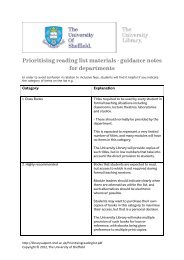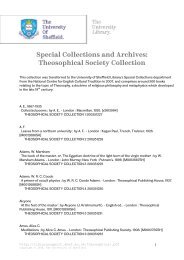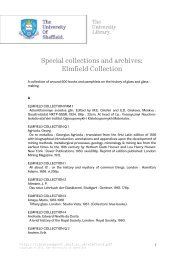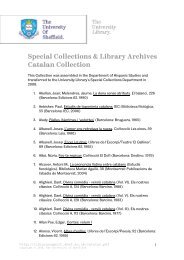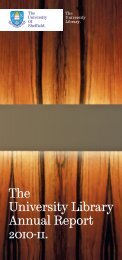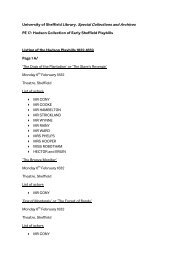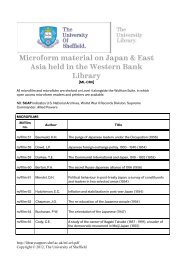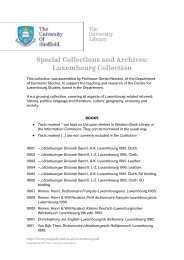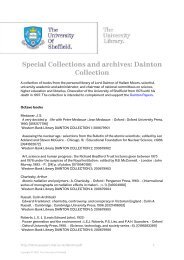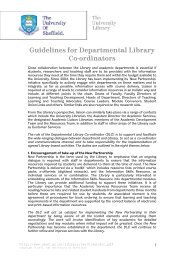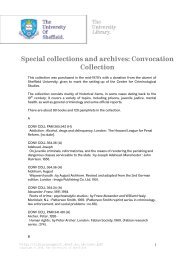The Geoffrey Bullough Collection - Temporary Home Page ...
The Geoffrey Bullough Collection - Temporary Home Page ...
The Geoffrey Bullough Collection - Temporary Home Page ...
You also want an ePaper? Increase the reach of your titles
YUMPU automatically turns print PDFs into web optimized ePapers that Google loves.
5d. Density of dialect representation<br />
Moderately marked<br />
5e. Location of dialect<br />
Dialect entirely in dialogue<br />
5f. Characteristics of dialect speakers<br />
Male, elderly, peripheral character<br />
5g. Consistency of representation<br />
No evidence of code-switching<br />
6. Narrative comments on dialects and varieties<br />
None noted<br />
7. Other points of interest<br />
Dialect is marked in reported speech throughout this text: if a character‘s<br />
dialogue is represented with markers of dialect, then his/her reported speech<br />
will feature the same conventions<br />
Set in America to begin with, before moving to England. Familial opposition to<br />
America / Americans represented by figuring AmE as ‗slang‘. For example, Cedric<br />
uses the term square to describe Dick (boot-black, see above) when speaking to<br />
Mr Havisham: ‗It would make you mad you know, if you were […] being square all<br />
the time, and your partner wasn‘t square at all.‘ (p. 40). <strong>The</strong> narrative following<br />
this dialogue refers to Cedric ‗quoting his friend Dick‘s bits of slang in the most<br />
candid good faith‘ (p. 41). Later still, when Cedric is speaking to the Earl, the term<br />
appears again:<br />
[C]edric answered: "Well, there was Dick," he said. "You'd like Dick, he's so<br />
square."<br />
This was an Americanism the Earl was not prepared for.<br />
"What does that mean?" he inquired.<br />
Lord Fauntleroy paused a moment to reflect. He was not very sure himself<br />
what it meant. He had taken it for granted as meaning something very<br />
creditable because Dick had been fond of using it.<br />
"I think it means that he wouldn't cheat any one," he exclaimed; "or hit a boy<br />
who was under his size, and that he blacks people's boots very well and makes<br />
them shine as much as he can. He's a perfessional bootblack." (p. 85).<br />
Note narrative comment also considers this ‗slang‘.<br />
<strong>Bullough</strong> <strong>Collection</strong> No. 63 De Omnibus Rebus by Mrs W. Pitt Byrne<br />
1. Publication details<br />
Author: Byrne, Mrs W. Pitt<br />
Author dates: 1819-1894<br />
Title: De omnibus rebus: an old man‟s discursive ramblings on the road of everyday<br />
life; by the author of “Flemish interiors”<br />
Publication: London: John C. Nimmo, 1888<br />
First published: 1888<br />
2. Genre/ subgenre<br />
<strong>Collection</strong> of observations, anecdotes, and essays.<br />
3. Brief synopsis<br />
Loosely based around buses; their history and development; journeys on buses; their<br />
passengers and drivers. <strong>The</strong> ‗discursive ramblings‘ of the title is probably as apt a<br />
description as any.<br />
4. Overview of varieties / dialects<br />
http://librarysupport.shef.ac.uk /bullough.pdf<br />
Copyright © 2007, <strong>The</strong> University of Sheffield<br />
35





